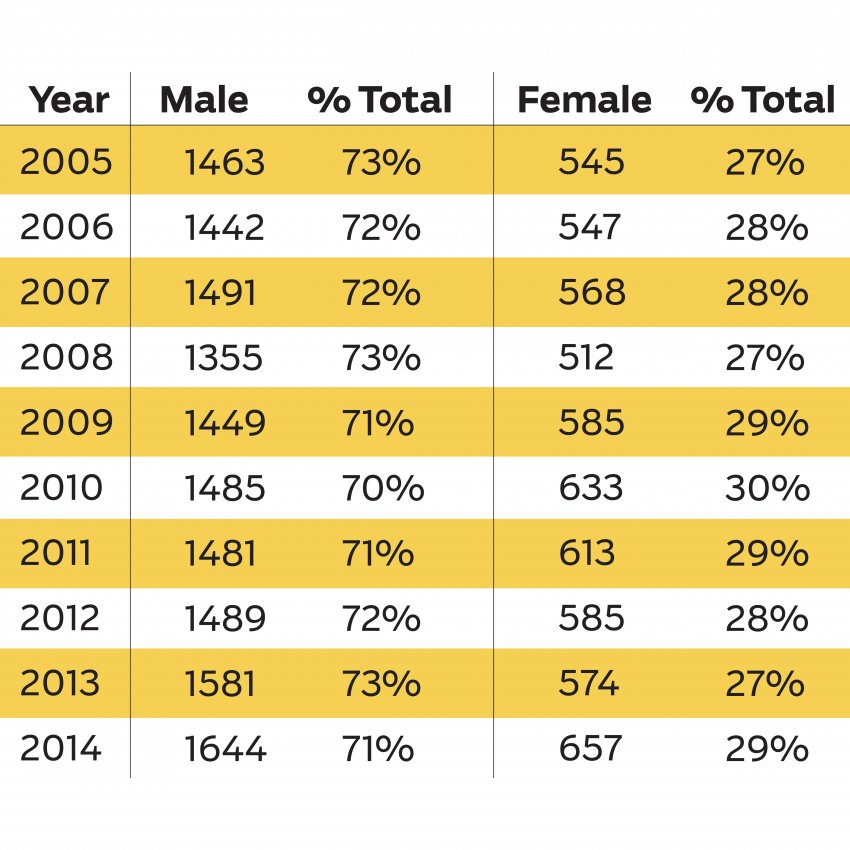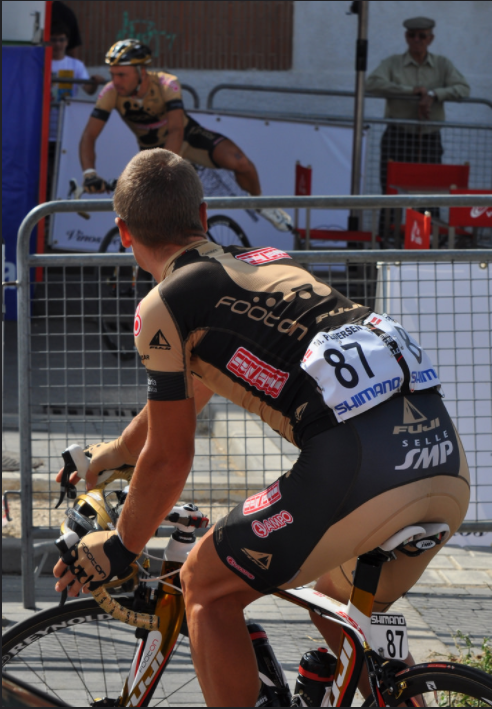A couple weeks ago, I spent some time in a YMCA parking lot to do the Wichita Area Metropolitan Planning Organization's bike/pedestrian count. I was in a pretty rural area, and the bike/ped traffic was light. It gave me a chance to watch the steady stream of cars in and out of the lot, though. The Y was rocking, which made me happy, but I couldn't help but wonder about the goals of the people in the cars screeching in and out of the driveway.
A woman who worked in the office of a YMCA recently told me that one of the biggest safety issues the organization deals with is parking lot safety for pedestrians. So many people circle the parking lot in their fancy gas-powered wheelchairs during busy times that pedestrians crossing the lot were in danger of being run over.
This is not the kind of wheelchair I'm talking about. I might respect someone who circled the health club parking lot in this rig. By the way, there was a third dog riding on the scooter. Respect. This must have been a logistical nightmare to get out the door.
She was talking about people circling the lot, mind you, so that they could walk the minimum distance to get into the building and walk...on a treadmill. Or ride a stationary bike or something.
This problem is a bit of a throwback for me. I remember as a kid, when the remote controls for TVs were still mostly up-and-down affairs (hit the up arrow to scroll upward through channels, hit the down arrow to go the other way; ditto volume), I would, out of habit, walk all over the room looking for the remote so I could change the channel on the TV. I would walk multiples of the distance it would have taken me to simply get off the couch and walk to the TV and push a button. But like the Kodak people who couldn't imagine a world without film, I couldn't imagine a world without the satisfying weight of that remote, with its sleek aluminum Sony case, in my hand.
Is there a name for this particular brand of self-defeating convenience? I've stretched Google's abilities to the limit and I can't identify one. But it clearly pre-dates modern technology. And don't get me wrong. I've ridden, and continue to ride, an absurd number of miles in cars. But I've felt like an asshole for almost all of those miles that didn't involve traveling outside of town.
But back to parking. Scott Wadle of the City of WIchita likes to say that there's no such thing as free parking. While he means that we all subsidize the space that cars take up whether we mean to or not, I think of it in more cosmic terms. All that space could be used for something else. And the physical activity it would take us to park in vertical garages and walk to our destination, or the slightly greater physical activity it would take for us to bike to work would be a small price to pay to get green space and health back. An optimist's view of the coming autonomous fancy gas-powered wheelchairs is that we'll need far less parking, thus opening up more and more space for commerce and for public use. A pessimist's view is that we'll eventually transition to a WALL-E situation in which your autonomous gas-powered wheelchair picks you up at your door to deposit you in front of the door to your office, at which point a smaller, more Segway-inspired motorized device takes you to your desk. Where you sit. All day.
I'm not going to talk about "productivity" or "optimization" here. There are plenty of places to get a dose of that perspective. But just consider this when it comes to the YMCA or your local health club: grinding away on a treadmill for 30 minutes a day after driving an oversize luxury wheelchair to the building is not my idea of freedom. It's a chore. But if I turn that chore into the choice to walk or ride by the health club while I watch all the wheelchair circle: that choice makes me unspeakably happy.
























